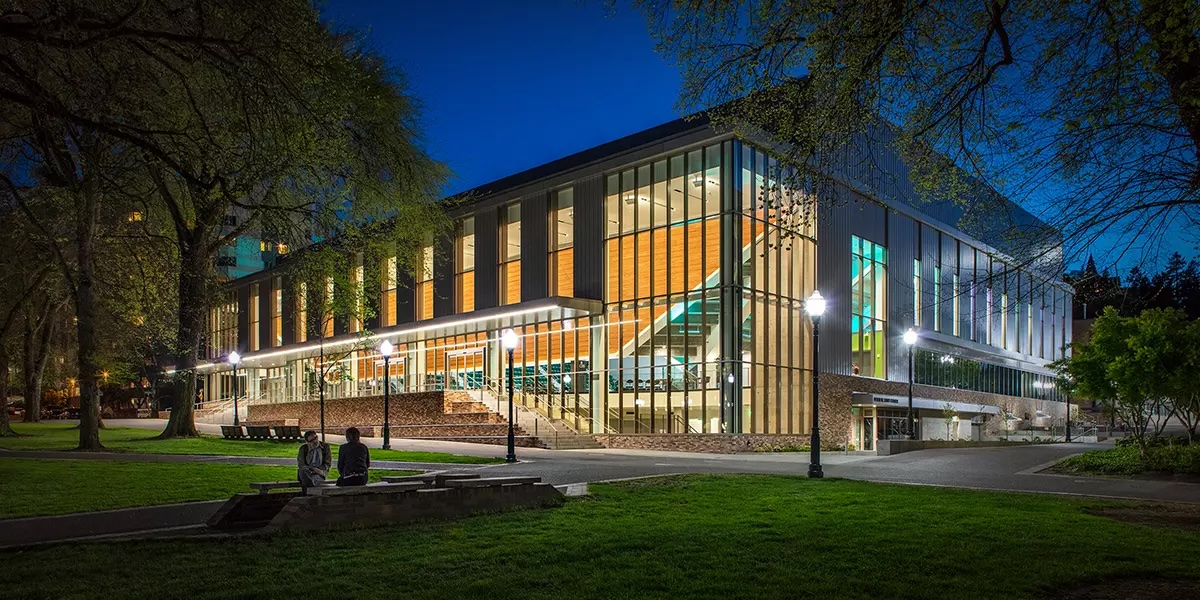Donald Trump was sworn in for his second term as President of the United States on Jan. 20. Issuing over 200 executive orders and proclamations on his first day, Trump aimed to make a statement that, under his administration, he will not hesitate to initiate change.
For Americans who have felt disenfranchised by the historically slow rate at which legislation is passed and significant actions are taken, this appears to be a wanted change of pace. For others – not exclusively Democrats – the quantity of orders is irrelevant; their focus falls on the content of some executive orders that stood out as partisan, impulsive or constitutionally questionable.
Trump was successful in fulfilling many of his major day-one campaign promises, such as signing executive orders to close asylum applications, cut manufacturing regulations, expedite oil drilling and extend the TikTok ban’s deadline (by 75 days). Trump has – for a long time – planned to make a big statement on his first day in office. But not all of the policies he passed on day one are as inconsequential in the lives of citizens as renaming the Gulf of Mexico the “Gulf of America.”
Leaving the World Health Organization (WHO), leaving the Paris Climate Accords, revoking the civil-rights-era Equal Employment Opportunity Act, defunding schools that teach “DEI” and “Critical Race Theory” and ending birthright citizenship are examples of executive decisions that have prompted strong criticism and a wave of legal pushback.
The Wolf interviewed former teacher Christopher Murray and senior Amelia Ward for comments on different executive orders, as well as government and economics teacher Christopher Duke, who explained the legal conflicts arising and the threat of trade wars.
The full story and interviews can be found on the website Tuhswolf.com, or by one of the QR codes within the paper.
Q: In your speech at TuHS’s ‘24 graduation, you made references to Trump’s comments and policies on immigrants…. Could you expand on what personal anecdotes from your time teaching at Tualatin inspired your thoughts and speech, now that Trump has taken action?
Murray: Ah yes – the rhetoric against immigrants, that Mexican immigrants are rapists and murderers, that they are invading our country, and that they are poisoning the blood of our country. This is the classic playbook of a demagogue – a person who divides us preying on our prejudices. I am an old dude – all my life this is what Republicans have done. They can win by dividing us. Democrats stand for universal health care, tax cuts for the middle class (and more taxes for the wealthy), the environment, and social services for everyone. These are wildly popular positions. The only way for Republicans to win is to divide us. This rhetoric about immigrants is just more of their “othering” – putting the blame on some other group. “It’s the people getting gay marriages that are ruining your life, it’s the trans people that are ruining your life, it’s the people crossing the southern border that are ruining your life,” and on and on. (Adolf Hitler “othered” the Jews – he also used the term “blood poisoning.”)
So let me cloud the issue here with some facts about immigrants:
- Immigrants have a crime rate that is much lower than that for natural born citizens. It’s somewhere between 30 percent of our crime rate, to maybe 60 percent – so immigrants are about half as likely to commit crime as the rest of us. We are more than twice as likely to be rapists and murderers than they are.
- Immigrants are more than twice as likely to create jobs than natural born citizens. This is because they are entrepreneurs – they start businesses, they improve our economy.
Now when you hear someone saying that people of color crossing our border are criminals – that’s not really true. That’s white nationalism. Do your own research. Immigrants are not criminals.
When I was writing my speech I was amazed when I started to tally the numbers of immigrant children I had in my classes – probably a third of my second year students had immigrant parents. Really some of the best students – and it has always been that way.
So here’s the thing about immigrants – we have the largest immigrant population of any country in the world – about 14 percent of our population. It’s why we are such a great country, in my opinion. It is true that there are more than 10 million undocumented immigrants in this country, but they are paying taxes (without receiving all the benefits the rest of us do) and contributing to our economy (and committing less crime per capita than the rest of us). They are here illegally, but our economy relies on them. In my opinion, the situation is exploitative – undocumented workers can’t really complain about working conditions because they fear deportation, and employers know this.
Alabama passed a bill (HB 56) in 2011 that made it so undocumented immigrants could not put their kids in school. Immigrants left the state in numbers so great that about $6 billion of crops rotted in the fields.
Most of the law was struck down in courts, but the state can still go after employers who hire undocumented people. The law goes almost entirely unenforced now because farmers would lose too much money.
So we have a situation where we have an economy that partially relies on undocumented workers who come to work in some pretty tough jobs – And there are some very wealthy people in our country who want it to stay that way.
If I were king, I would find a way to legalize the process. The deal would be that you could come to the country – you would have to register, pay taxes, get a driver’s license if you wanted to drive. You would also have a path to citizenship if you wanted, and only then could you vote, and collect social security.”
What was your initial reaction to the executive orders Trump made closing the border and ending birthright citizenship?
Birthright citizenship is in the constitution, so I don’t think the executive order is quite going to do it. He can close the border for refugees – people fleeing horrific conditions in their own country – that’s particularly cruel, but it doesn’t surprise me. He is a mean heartless person. Someone I play fiddle with – a woman a bit younger than me, actually met Trump in person by accident some 20 years ago. She won an award, and the Portland company flew her to Manhattan to receive the award. The cab driver dropped her at Trump tower by mistake, and she realized this in a panic. Entering the lobby, she asked a man coming out of an elevator (Trump himself it turns out, but she didn’t know it at the time) where her hotel was and how to get there. Trump didn’t help her, instead he said “I don’t have to help you, and besides, (and he led her to a mirror) look at yourself, you’re a mess!” (Her mascara was running, and one of her stockings had slipped down)
Any extra thoughts, comments, opinions on any of Trump’s policies, tariffs, declaration of two genders, gulf of America?
Declaration of two genders:
Isn’t it amazing how he knows how to live other people’s lives better than they do? What a nutter. How does someone else being trans hurt these people??
Renaming the Gulf of Mexico (or changing Denali to Mt McKinley)
I thought he renamed it the “Gulf of Fragile Masculinity” – haha – this is just basically Trump engaging in a little Lone Rangering I think.
MAGA: But it’s always been Mt McKinley!
Me: Really? How many thousands of years was it called that?
Remember that Trump is distracting you – basically he just overwhelms the news cycles and causes chaos. Focus on what the real agenda is. Read what project 2025 is all about. Join the resistance. Get out the vote.
While birthright citizenship has thus far been the most debated executive order, many are equally split by the revocation of the Equal Employment Opportunity Act and promises to defund institutions that support Diversity, Equity, and Inclusion (DEI) practices. One such practice, affirmative action – procedures designed to eliminate unlawful discrimination among applicants, remedy the results of such prior discrimination, and prevent such discrimination in the future – has recently been struck down by the Supreme Court. Many people on both sides take issue with the implication that merit may not be the most important factor in college admissions and hiring practices, with institutions aiming for diversity statistics instead.
Ward: “My favorite executive order is the Ending Radical and Wasteful Government DEI Programs and Preferencing,” student Amelia Ward said. “I believe in equal opportunity for everybody, and I think that is a broadly agreeable statement and value that most people hold. I’ve experienced firsthand opportunities being narrowed because of my demographic because I wasn’t what somebody was looking for. Somebody with a similar skill set as mine got a spot instead of me because I didn’t fit the ‘image’ they were looking for, which is something that I can’t change. I don’t think people should be picked or not picked for job positions/college because of their skin color or unchangeable aspects of their identity. That’s not equality. I think that people should be chosen for opportunities based on their hard work and merit.”
What is your least favorite action/order the president has taken so far in his term, and why?
My least favorite executive order is Restoring the Death Penalty and Protecting Public Safety. I haven’t necessarily came to a conclusion on whether I disagree or agree with it fully but I feel like this would go in the least favorite category. I just don’t know if I can justify killing somebody no matter how heinous their crime was, like in my head I think it would just be the best decision to leave them in jail. Although our judicial system works well, it isn’t perfect and people are convicted wrongly, I wouldn’t want to kill one of those people. I mean obviously these violent acts are wrong and especially murder, that’s tied into my personal value/faith. I think this is one I’d have to disagree with because nothing is more personal than death.
What issues and policies related to the presidents position are and were most important to you leading up to the presidency and now?
The economy and fiscal responsibility 100%. Inflation has gone on for too long, government spending is too high and government borrowing needs to decrease. I am blessed because I haven’t had to deal with this first hand but I’ve watched my family deal with working harder for less money and paying higher taxes.
What are your thoughts on the end of birthright citizenship?
There seems to be ambiguity on what constitutes “birthright citizenship”. I think they because of the ambiguity this is a great question for the Supreme Court to take up and answer.
Q: “To the best of your knowledge, do any of Trump’s executive orders, such as the revoking of birthright citizenship, carry any constitutional or otherwise legal concerns?”
DUKE:: “[For] every executive order that the president signs, there has to be a process by which we make sure that those orders fall within the powers that have been granted to the president both by Congress and by the Constitution,” Duke said. “So with [birthright citizenship] in particular, there seem to be concerns that it is in violation of the 14th Amendment, which, does appear to say pretty clearly that there is a Constitutional right to birthright citizenship.I think even just this morning, a judge in Seattle struck down that executive order, so it is probably going to be appealed again to the Supreme Court.”
As of press time, the most recent development is that a Federal District Judge from Maryland, Judge Deborah Boardman, issued a nationwide preliminary injunction that halts the order and forces further deliberation.
“The denial of the precious right to citizenship will cause irreparable harm,” she said in her ruling. “It has been said the right to U.S. citizenship is a right no less precious than life or liberty. If the court does not enjoin enforcement of the executive order, children subject to the order will be denied the rights and benefits of U.S. citizenship and their parents will face instability.”
Duke agreed that this particular order was likely to face opposition in the courts.
“Of all the executive orders that were signed, that one seems to be the most in opposition to legal precedent, so I would anticipate that that one would have a hard time holding in court,” Duke said.
Q: “To the best of your knowledge, do any of Trump’s other executive orders, such as the revoking of the EEOC, carry any constitutional or otherwise legal concerns?”
“I think it is common that people will challenge. Im pretty sure I’ve already seen some lawsuits brought forward. Again, both the changes that he has made to the firing and hiring practices of political appointees, people challenging the legality of that. People challenging the creation of the Department of Government Efficiency, the legality of that.
Its pretty common for citizens and people watching the government to exercise their ability to go to the courts.
So while I think the birthright citizenship one stands out as the one most in danger of being struck down by the courts, its possible the courts will also take exception to other pieces of these executive orders.
At the end of the day, the president does have a lot of power- So I think most of those executive orders are going to be able to stand as written.”
As an economics teacher, do you believe that tariffs on china will have a positive impact on the country? Canada? Mexico? What effects do or could these specific tariffs have on the economy?
“Tariffs, like every economic policy, come with costs and benefits. People who argue in favor of tariffs, usually do it… to protect domestic employment, where they watnt to try to keep demand for products local, which keeps jobs here. So that could be a useful policy, it could be a useful product for concern that foreign countries are making their products cheap by subsidising. We need to understand that Tariffs at their heart are a tax payed by American consumers. So when you put a tariff in place, one of the drawbacks is that it does lead to higher prices. At a time of coming out of a period of high inflation, we should understand that it will not be cost free, that tariffs will come with a higher cost of living for us. So its a matter of balancing those, when you think about all of our trade with china, is a tariff on every piece of our trade relationship good? That might be overly broad – are there parts of it that might benefit from tariffs, certain markets, thats possible.”






